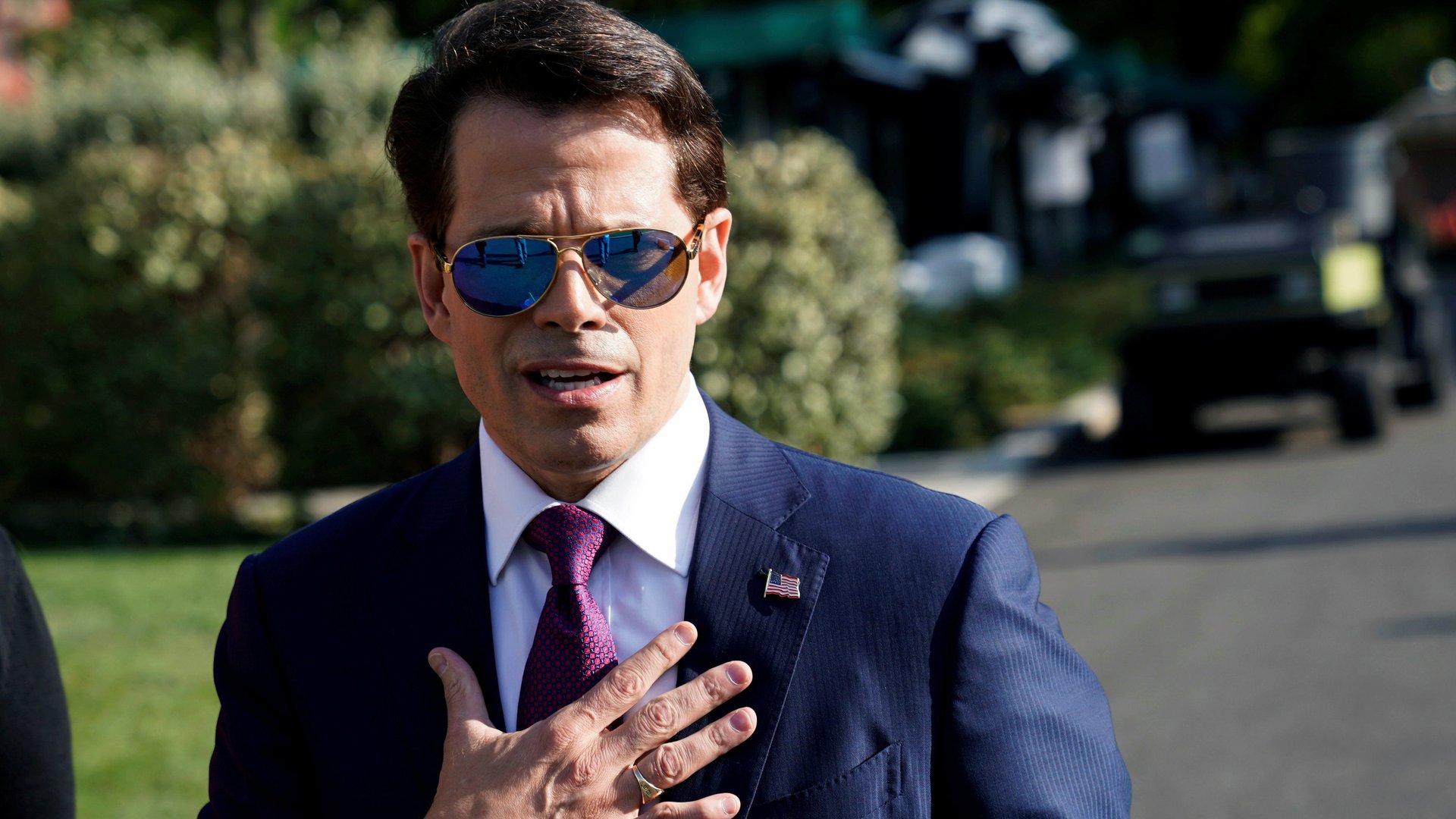Anthony Scaramucci’s hedge fund sale has been blocked amid fears of Chinese influence
In December, the financier and former Trump administration spokesman Anthony Scaramucci told Bloomberg that his hedge fund SkyBridge Capital would be a part of the Chinese conglomerate HNA “very shortly.” But after more than a year in limbo since the planned acquisition was first announced, a US government agency has effectively blocked it from taking place, by reportedly refusing to even accept the application.


In December, the financier and former Trump administration spokesman Anthony Scaramucci told Bloomberg that his hedge fund SkyBridge Capital would be a part of the Chinese conglomerate HNA “very shortly.” But after more than a year in limbo since the planned acquisition was first announced, a US government agency has effectively blocked it from taking place, by reportedly refusing to even accept the application.
When news first broke of SkyBridge’s pending sale to HNA, in January 2017, some speculated that the deal was an attempt by Beijing to buy influence in Washington. HNA is suspected of having ties to the Chinese government, and Scaramucci, SkyBridge’s founder, was an ally of US president Donald Trump, and briefly his communications chief.
But on April 30, SkyBridge released a notice saying that it and HNA will terminate their acquisition attempt. The companies said that the Committee on Foreign Investment in the United States (CFIUS), an inter-agency branch of the US Treasury that vets cross-border deals for their potential impact on national security, “offered a path to approval subject to certain mitigation measures.” A lag in the regulatory process led the two companies to decide it was “not in their business interests to pursue the transaction”
Reuters suggests, however, that the deal never really stood a chance, reporting that CFIUS declined to even accept the two parties’ application for a review. Neither HNA nor SkyBridge confirmed this to Quartz.
The deal’s collapse should not come as a surprise, given that HNA has attracted scrutiny from Wall Street, Washington, and Beijing. In 2016, HNA went on a massive spending spree, purchasing stakes in high-profile overseas companies including Hilton Hotels and Deutsche Bank. But concerns about its opaque ownership structure have since prompted some firms to avoid working with it.
Lawmakers fear that HNA is not revealing the identity of true shareholders because it maintains ties to China’s government. That’s a suspicion with some precedent: Not long after Anbang Insurance Group, another Chinese conglomerate with a byzantine shareholding structure, acquired the Waldorf Astoria for $1.95 billion, the Chinese government abruptly took control of the company, effectively placing the iconic New York City hotel under Beijing’s control. Bank of America briefly paused doing business with HNA, while Goldman Sachs halted work on the IPO of one of its subsidiaries. The company has passed compliance checks at other banks, however.
CFIUS has already intervened on one of HNA’s planned acquisitions. After HNA’s attempt to purchase the US-based software company Ness for $325 million failed in December, due to a CFIUS rejection, Ness filed a lawsuit against HNA alleging that the company deliberately evaded revealing its ownership structure throughout the review.
Beijing, meanwhile, has imposed controls on capital outflows that have made HNA halt its debt-financed buying spree. Lately, the company has sought to offload its stakes in many of its overseas holdings.
The SkyBridge deal’s collapse comes as CFIUS steadily halts more deals that are, at least on the surface, only tangentially related to political tensions with China. In March, the branch halted chip maker Broadcom’s bid to buy Qualcomm, citing concerns about Chinese tech prowess—even though Broadcom is a Singaporean company. In January, the Alibaba affiliate Ant Financial’s attempt to buy the money remittance company Moneygram also failed due to CFIUS intervention.
That deal’s collapse signaled that Washington views consumer data collection as a national security concern—and that the White House is being more defensive than ever when it comes to Chinese acquisitions of US companies.